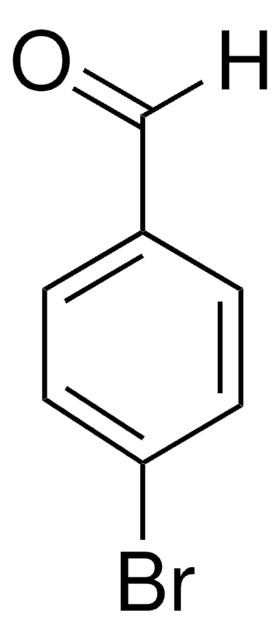187054
4-Bromobenzyl alcohol
99%
Synonym(s):
(4-Bromophenyl)methanol, (p-Bromophenyl)methanol, 1-(p-Bromophenyl)methanol, 1-Bromo-4-(hydroxymethyl)benzene, 4-Hydroxymethyl-1-bromobenzene, p-Bromobenzyl alcohol
About This Item
Recommended Products
Quality Level
Assay
99%
form
solid
mp
75-77 °C (lit.)
solubility
dioxane: soluble 1 g/10 mL, clear to faintly turbid, colorless to faintly yellow
functional group
bromo
hydroxyl
SMILES string
OCc1ccc(Br)cc1
InChI
1S/C7H7BrO/c8-7-3-1-6(5-9)2-4-7/h1-4,9H,5H2
InChI key
VEDDBHYQWFOITD-UHFFFAOYSA-N
Gene Information
human ... ALOX12(239) , ALOX15(246)
Looking for similar products? Visit Product Comparison Guide
General description
Application
- hydroxyl end functionalized, substituted polyfluorene
- amphiphilic, symmetric rod-coil, triblock copolymer of poly(9,9-didodecylfluorene-2,7-diyl) and poly(hydroxyl ethyl methacrylate)
Hazard Statements
Precautionary Statements
Hazard Classifications
Aquatic Chronic 3
Storage Class Code
13 - Non Combustible Solids
WGK
WGK 3
Flash Point(F)
Not applicable
Flash Point(C)
Not applicable
Personal Protective Equipment
Choose from one of the most recent versions:
Already Own This Product?
Find documentation for the products that you have recently purchased in the Document Library.
Customers Also Viewed
Our team of scientists has experience in all areas of research including Life Science, Material Science, Chemical Synthesis, Chromatography, Analytical and many others.
Contact Technical Service








